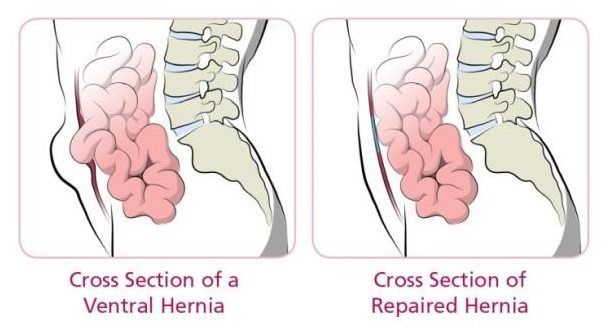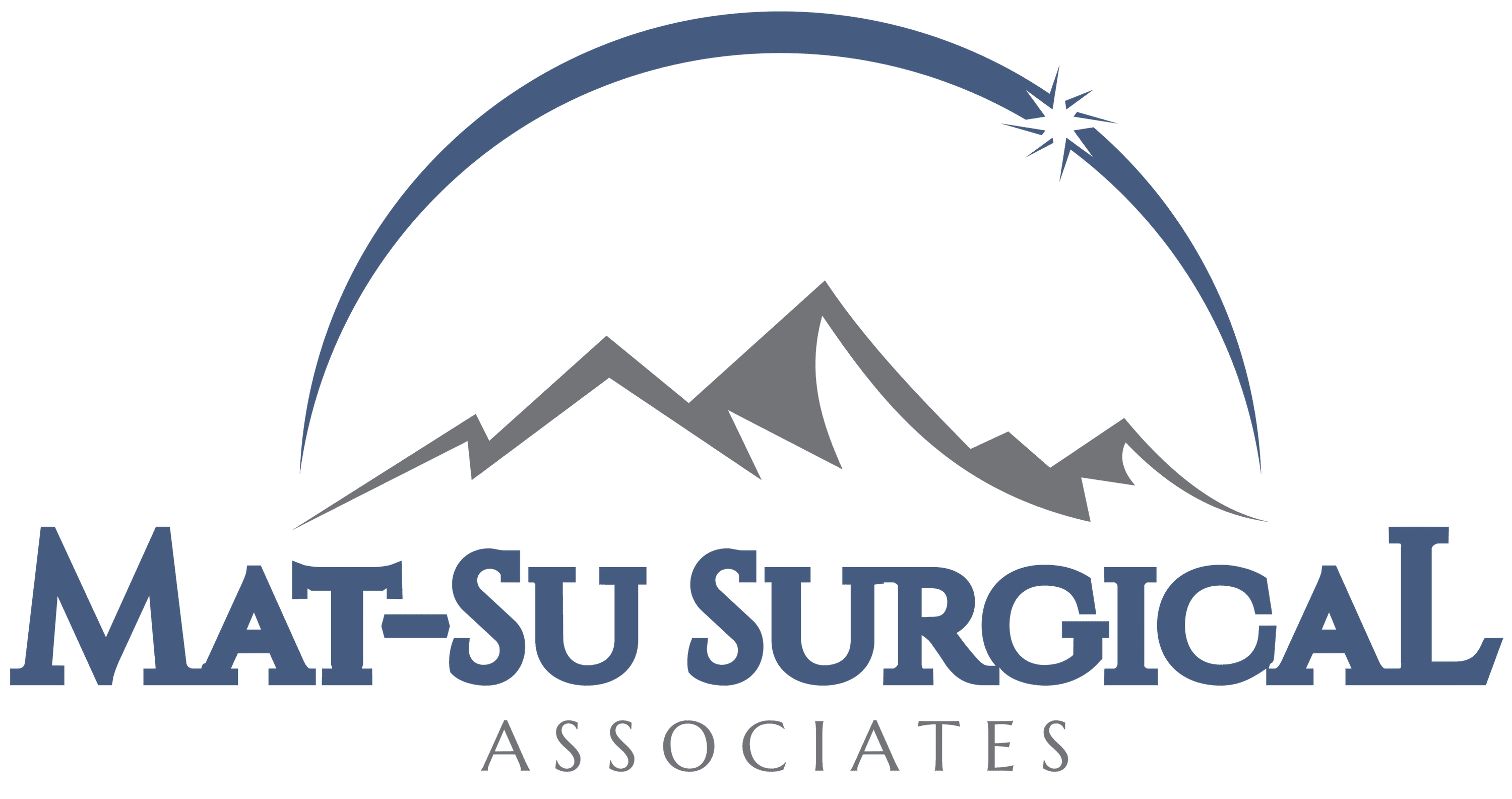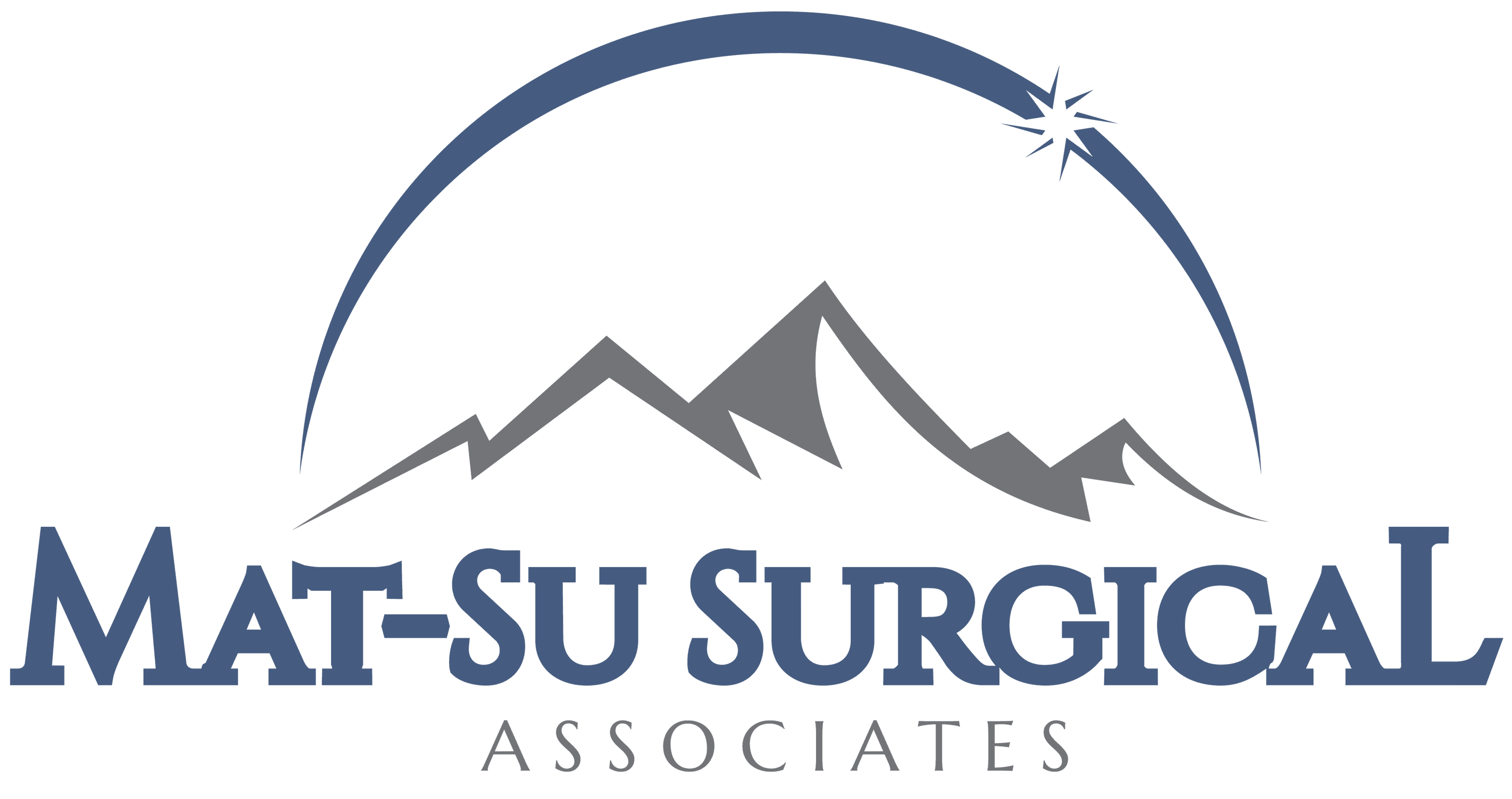da Vinci® Hernia Surgery
What’s a hernia?

A hernia occurs when tissue pushes through an opening in your abdomen (ventral hernia) or groin area (inguinal hernia). A hernia can only be repaired with surgery.
If your doctor decides that a surgical repair is right for you, talk to your doctor about all of your options, including minimally invasive surgery. One option your surgeon may present is robotic-assisted surgery.
How can you prepare for surgery?
To help you make an informed decision, consider bringing questions like these to your surgeon or doctor visit:
- What medical options are available for my hernia?
- What happens if I don’t get surgery?
- What kind of experience do you have with my type of hernia?
- Should I get a second opinion?
- What is the difference between robotic-assisted surgery and laparoscopic surgery?
- What type of anesthesia will I receive?
- How long will surgery take?
- Where will I have scars?
- When will I go home?
- How soon can I lift light weights after surgery? Heavier weights?
What will your surgeon do?
If you and your surgeon decide that robotic-assisted surgery is right for you, your surgeon will use a 3D high-definition camera for a crystal-clear and magnified view of your hernia.
Your surgeon will sit at a console next to you and operate through a few small incisions using tiny instruments, including a camera. Your surgeon fully controls all instruments. Every hand movement is translated by the da Vinci®System in real-time to bend and rotate the instruments for a precise repair of your hernia.
How might you feel after surgery?
Results vary, but if you are an appropriate candidate for minimally invasive surgery, robotic-assisted hernia surgery may be a good option for you. In early studies*, people reported feeling less pain during recovery from robotic-assisted hernia surgery than after laparoscopic surgery.1 A patient survey study also suggested that most people felt little to no pain one week after robotic-assisted hernia surgery.2
Early studies* suggest that robotic-assisted hernia repair with the da Vinci surgical system may get you back to what matters most … sooner.
When might you feel better?
Everyone is different, but in a market research study*, patients reported less pain, and said they experienced less disruption in their daily activities after having robotic-assisted hernia surgery as compared to open and laparoscopic surgery.2
Specifically:
- Most people reported less disruption to daily activities.
- 86% of patients reported they were not using pain medication 1-2 weeks later.
It’s about time.
Get back to what matters most … sooner.
If you and your doctor determine that a da Vinci hernia surgery is right for you, you might be interested in hearing about Jamie Zamora’s experience with da Vinci hernia surgery.
This video represents an individual patient experience that may not be generalizable.
- Single center unmatched, non-controlled, small sample retrospective experience. Results may not be generalizable Kimberly E. Waite, Comparison of robotic versus laparoscopic transabdominal preperitoneal (TAPP) inguinal hernia repair, J Robotic Surg DOI 10.1007/s11701-016-0580-1.
- Internal non-case matched data analysis; not peer reviewed, not published, Results may not be generalizable. Quantitative market research study / expressed opinions of patients that received open, laparoscopic or da Vinci inguinal hernia repair in the past year. Reduced Patient Pain Perception with da Vinci® Inguinal Hernia. Reference: Intuitive Surgical Pain Perceptions Survey, November 2016. n = 526 patients. Presented at ISPOR 2017.
- Multicenter data analysis from AHSQC database Ajita S. Prabhu, Laparoscopic vs Robotic Intraperitoneal Mesh Repair for Incisional Hernia: An Americas Hernia Society Quality Collaborative Analysis, Journal of the American College of Surgeons, Feb 2017
- Two-center case matched, small sample experience. Results may not be generalizable. Luis A Martin-del-Campo, Comparative Analysis Of Perioperative Outcomes Of Robotic Versus Open Transversus Abdominis Release, Presented at SAGES 2017.
- Unless otherwise noted, all people depicted are models.
IMPORTANT SAFETY INFORMATION
Serious complications may occur in any surgery, including da Vinci® Surgery, up to and including death. Individual surgical results may vary. Patients should talk to their doctor to decide if da Vinci Surgery is right for them. Patients and doctors should review all available information on non-surgical and surgical options in order to make an informed decision. Please also refer to http://www.daVinciSurgery.com/Safety for Important Safety Information.
©2017 Intuitive Surgical, Inc. All rights reserved. Product names are trademarks or registered trademarks of their respective holders. The information on this website is intended for a United States audience only.
PN 1008323 Rev D 7/2017


